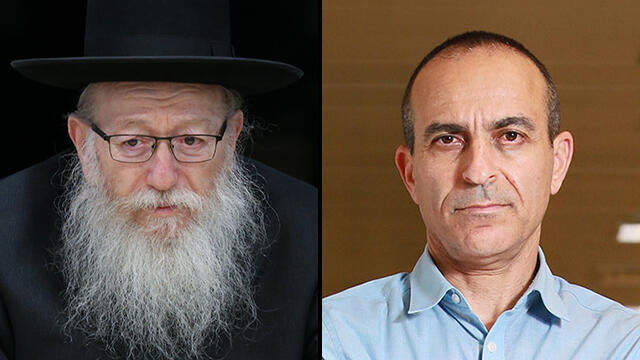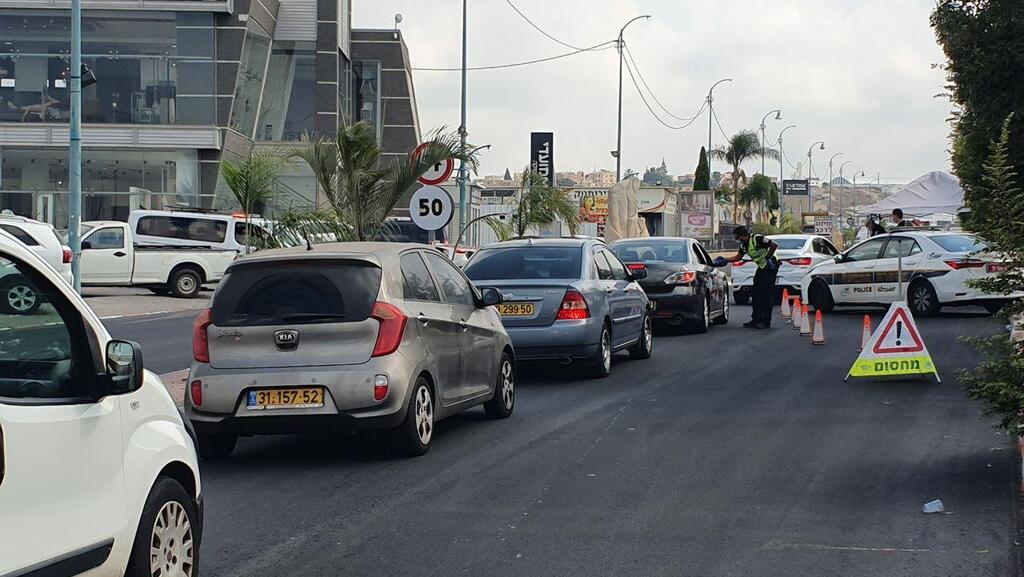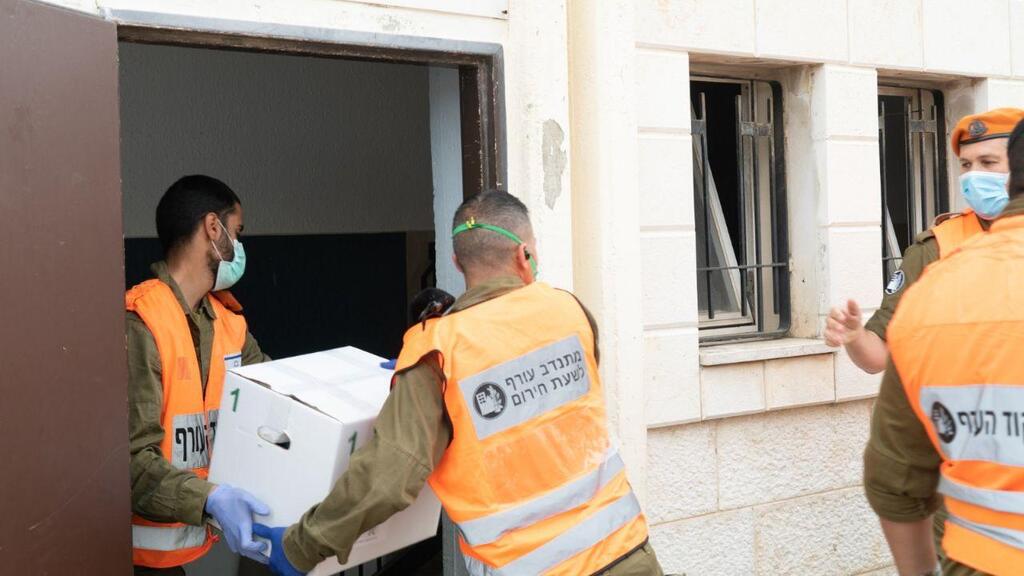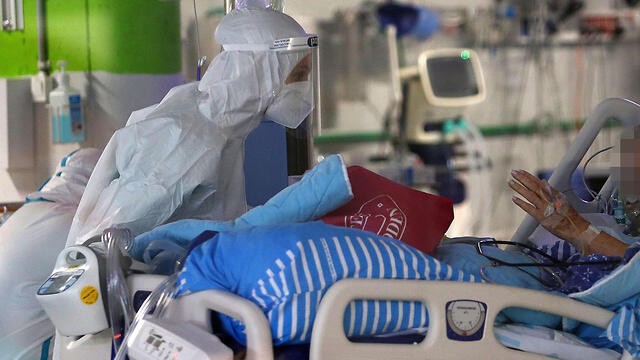Ministers on the so-called coronavirus cabinet on Thursday rejected coronavirus czar Professor Ronni Gamzu's proposed plan to mitigate the spread of COVID-19, as the country approached 100,000 confirmed cases of COVID-19 since the start of the pandemic.
Ministers from the religious parties claimed the plan targeted prayer gatherings while cultural events were being allowed to proceed.
Prime Minister Benjamin Netanyahu walked out of the meeting and ministers agreed to resume deliberations next week.
4 View gallery


Housing Minister Yaakov Litzman (left) and coronavirus czar Ronni Gamzu
(Photo: Dana Kopel, Alex Kolomoisky)
Gamzu's plan aimed to deal with the high rate of coronavirus infections plaguing Israel.
The ministerial committee was also to discuss ways to reduce the COVID-19 infection rate in the country, including either partial or full lockdown for the upcoming Jewish High Holidays, which on Sept. 18 with Rosh Hashanah, the Jewish New Year.
A total of 789 people have already died from the virus in Israel, indicating that one in every 125 infected people in the country will succumb to the disease.
Gamzu said the rate of contagion has remained steady with up to 1,700 new cases confirmed every day.
He expressed concern that the Haredi community was not being tested enough even though a third of all cases have been found in ultra-Orthodox cities and neighborhoods.
The Arab sector has also shown a rise in COVID-19 cases with 20% of all those tested showing a positive result.
Gamzu had prepared what he called a "modified containment" plan for the month of High Holidays to be implemented if the country failed to bring the number of daily new infections down to 400 within the next month.
Ministers were advised by Gamzu to close down educational institutions in areas defined as red zones because of increased contagion with the exception of boarding schools and including religious seminaries.
He has also recommended that travel to Ukraine for a pilgrimage to the grave of a Hasidic rabbi be restricted. Each year around the Jewish New Year thousands of religious Jews make the trip to the Ukrainian city of Uman.
Ukraine has already announced that it will not allow the annual pilgrimage to take place due to the high infection rate in Israel.
If the number of daily cases of coronavirus is not reduced, Gamzu said, he would recommend red zones of high infection that would be subject to travel restrictions.
4 View gallery


A police roadblock at the entrance to the village of Yarka when it was designated a red zone earlier this month
(Photo: Ahiya Raved)
He also recommended public-facing businesses such as shops and cafes be closed in the general population and the public sector limit the number of people in the workplace to no more than 40% of the staff.
Another recommendation included banning people from moving more than 500 meters from their homes during the Jewish New Year and Yom Kippur, while restricting the social gatherings to immediate family members and holding all prayers out of doors.
Gamzu described his plan as a traffic light with communities receiving a color according to the number of confirmed cases. Red would denote a hot spot and green would be for areas considered to have a low contagion rate.
The designation would be determined every weeks according to the number of confirmed cases per 10,000 of the population, the percentage of positive tests and the rate of infection in any given week.
The designation would be reviewed every two weeks to determine the trajectory of the virus in any given location and all designations would be made public.
Restrictions in red zones will include limiting the congregation of people to no more than 10 people indoors and 20 outdoors.
That number would increase to 25 people outdoors and 50 indoors in orange zones, 50 indoors and 100 outdoors in yellow zones and 100 indoors and 250 outdoors in green zones.
The plan also includes restrictions on schools, public transport and aviation, parks, religious sites, museums, malls and cultural events.
The Defense Ministry on Thursday said it would be extending a program to remove coronavirus patients from their homes into dedicated hotels and step up efforts to support families of the sick and others in need in the impacted communities.
4 View gallery


Soldiers assisting in food distribution in areas impacted by high rate of coronavirus infection
(Photo: IDF Spokesperson's Unit)
The ministry claims that there has been an improvement seen within a period of 20 to 30 days, in areas where it had intervened to provide alternative accommodation for COVID-19 patients.
Gamzu has faced opposition from National Security Adviser Meir Ben Shabbat, who advocated for a total lockdown to stop the coronavirus spread.
First published: 19:48, 08.20.20


